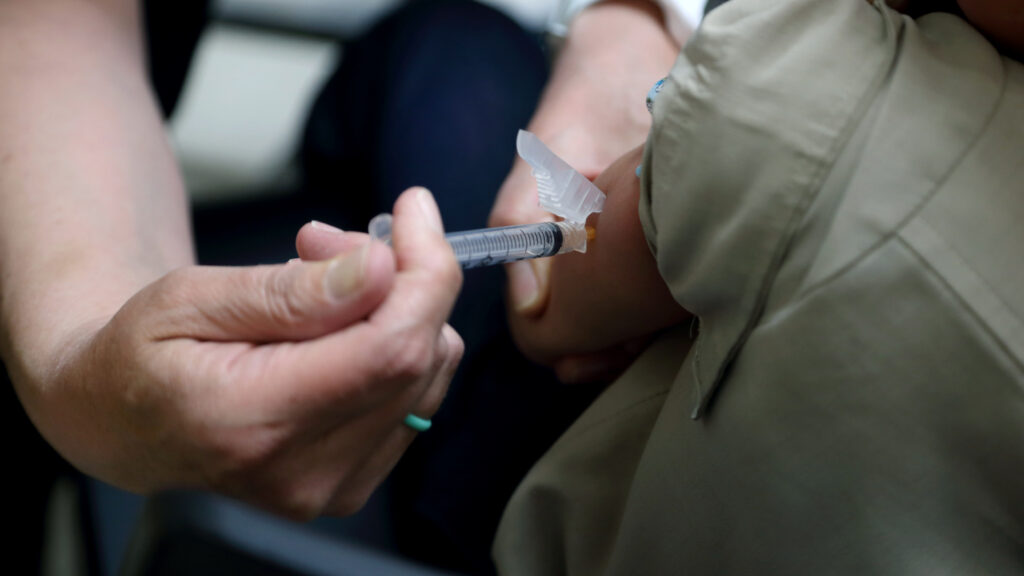Vesud In the wake of rising outbreaks of vaccine-preventable diseases like measles and chickenpox, more U.S. states are taking decisive action: tightening or eliminating religious and philosophical exemptions from school vaccine requirements. And early results show a clear trend vaccination rates rise when exemptions are restricted.
A case in point is Newton, Massachusetts, where public schools are now enforcing stricter rules. Students without up-to-date vaccinations for diseases like measles and chickenpox will not be allowed back in class, unless they have a valid exemption. In a memo, Superintendent Anna Nolin cited a recent chickenpox outbreak and growing concerns over measles as key reasons for the shift in policy.
But while these efforts are intended to safeguard public health, the religious exemption remains a legal avenue for families in Massachusetts to bypass vaccinations and its use is growing. According to recent data, the proportion of kindergartners with religious exemptions rose from 0.93% in 2020 to 1.33% in 2023, even as overall vaccination rates fell from 95.9% to 94.3% in the same timeframe.
Some schools have seen even more concerning trends. In certain districts, exemption rates soar as high as 12.8%, far above the threshold needed for herd immunity the critical level at which disease outbreaks are unlikely to spread.
“There’s a lot of concern about what’s happening with kids and keeping them safe from vaccine-preventable diseases,” said Northe Saunders, executive director of the SAFE Communities Coalition.
Massachusetts Debates Ending Nonmedical Exemptions
To address the growing loophole, lawmakers in Massachusetts are considering a bill that would remove nonmedical exemptions, including those for religious or philosophical reasons. Supporters argue that the law is necessary to prevent parents from misusing the current system.
Logan Beyer, a Harvard Medical School student and advocate for child health equity, testified that many families openly acknowledge exploiting the religious exemption without genuine religious belief. She recounted a conversation with one mother who admitted, “We don’t really go to church, but you don’t have to prove anything.”
Beyer warned that misuse of the exemption is creating “terrifyingly low” vaccination rates in some kindergarten classrooms across the state.
Other States Show the Policy Works
Massachusetts is not the first to confront the public health risks tied to exemptions. Several states including California, Connecticut, Maine, and New York have already eliminated nonmedical exemptions with notable success.
- Maine, once ranked among the worst for vaccine opt-outs at 5.3% in 2017, passed a law in 2019 that removed religious and philosophical exemptions. Since then, its MMR (measles, mumps, rubella) coverage among kindergartners rose to nearly 98%.
- California responded to a major measles outbreak originating at Disneyland by eliminating personal belief and religious exemptions in 2016. As a result, MMR coverage rose by 3%, and remains stable at over 96%, according to the California Department of Public Health.
- New York saw its vaccination rates surge following the 2019 repeal of religious exemptions, a policy move prompted by multiple measles outbreaks across Brooklyn and Rockland County.
Why Now? America Faces Historic Measles Surge
These legislative actions come as the U.S. faces one of its worst measles outbreaks in decades, with over 1,200 cases already reported in 2024. Public health officials are sounding the alarm, emphasizing that falling vaccination rates often driven by unverified exemptions are endangering both children and vulnerable populations.
Experts warn that even small dips in vaccination coverage can lead to exponential increases in disease outbreaks, especially for highly contagious viruses like measles, which require 95% immunity to prevent spread.
“It’s not just about personal choice,” says Saunders. “It’s about public safety. One parent’s decision can expose an entire school.”
A National Trend or a New Culture War?
While public health advocates hail these legislative changes as vital, critics argue they infringe on religious freedom and parental rights. Legal challenges have been mounted in some states, often backed by advocacy groups that question vaccine safety despite overwhelming scientific consensus.
However, courts have consistently ruled in favor of states’ rights to enforce vaccination policies in the interest of public health, citing Supreme Court precedents that date back over a century.
The Road Ahead
As the debate unfolds in Massachusetts, all eyes will be on lawmakers to determine whether the state joins the growing list of jurisdictions taking aggressive steps to protect students and curb outbreaks.
If passed, the new bill could serve as a national model not only in reversing the decline in vaccination rates but also in rebalancing the conversation between individual freedoms and collective health responsibility.
In the meantime, schools like those in Newton are tightening enforcement ahead of the new academic year, signaling a broader shift in how communities respond to vaccine hesitancy.
